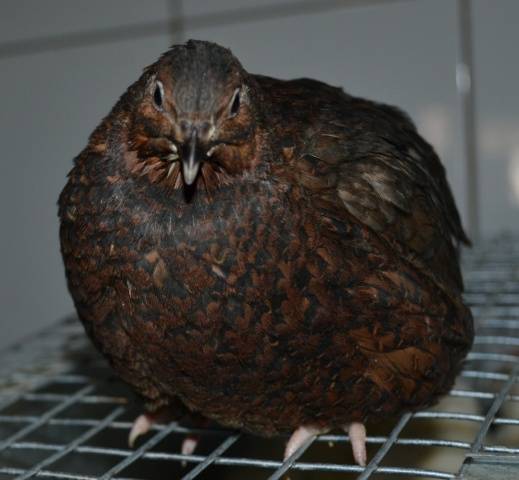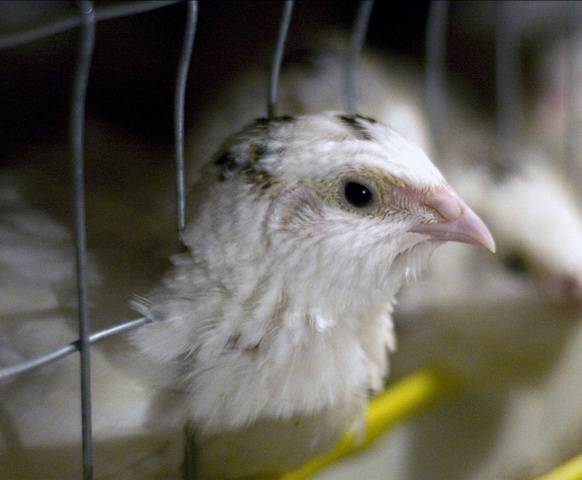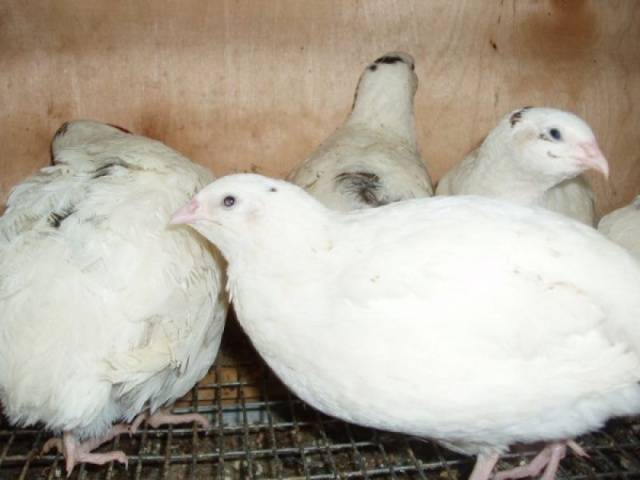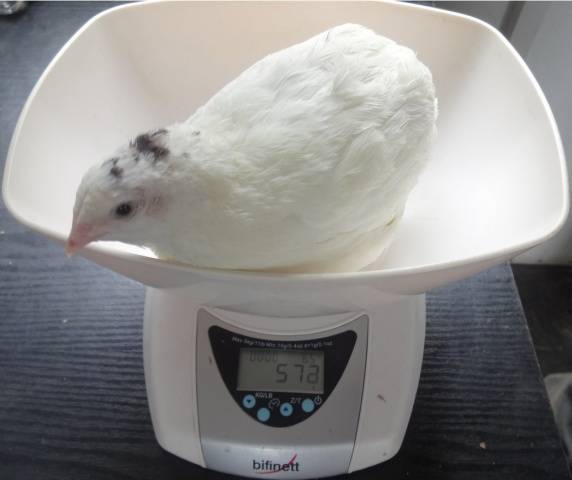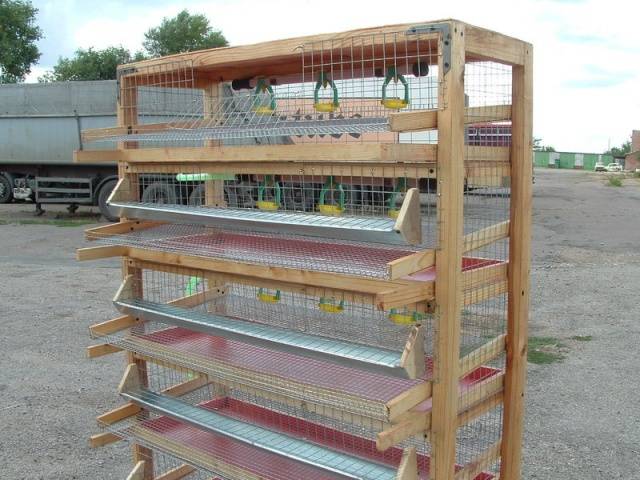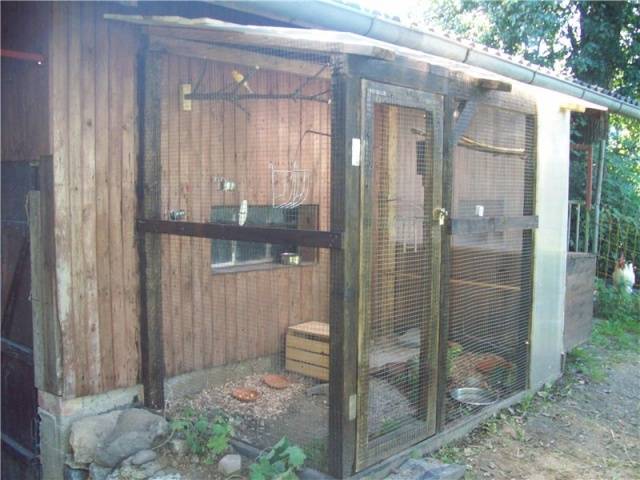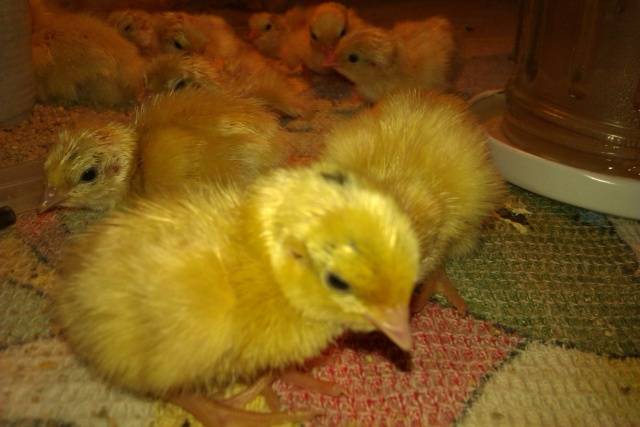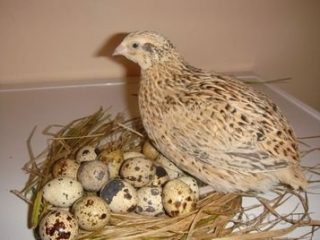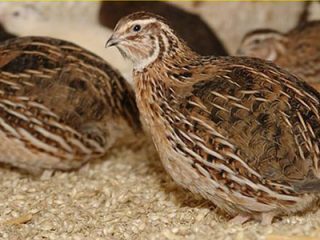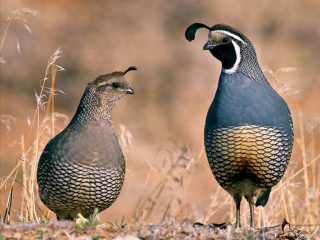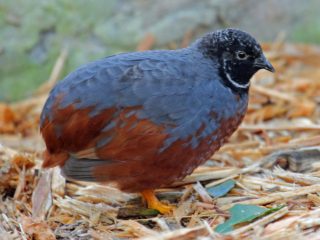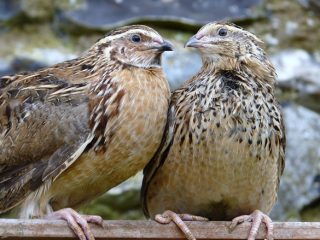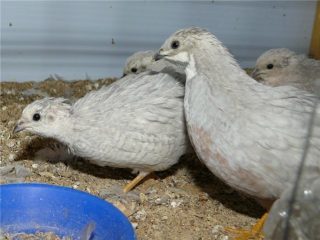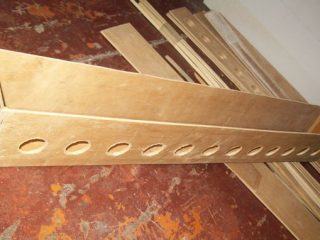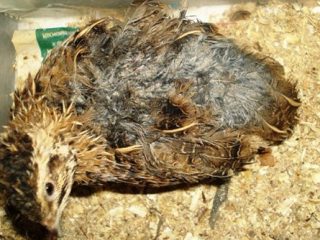Content
Quail breeds are divided into three types: egg, meat and decorative. In practice, some types have universal use.
Description of English quails
The breed is an egg breed, but is used both for obtaining eggs and for slaughtering for meat. The main advantages of English quails:
- High productivity;
- Universal use on the farm;
- Unpretentiousness in content;
- Precocity;
- They can easily tolerate short-term drops in air temperature.
English quails have two varieties - with white and black plumage. They differ slightly mainly in appearance. The differences can be seen in the photo.
English white quail have white feathers, sometimes with small black spots. The eyes are light brown, the beak and paws are light. The quail carcass is pinkish in color and in excellent presentation.
The English black quail is distinguished by its decorative appearance; its plumage has various shades of brown and black. Photos do not convey the beauty of this bird well. The quail's eyes are golden, its beak and paws are black.
Black quail meat is dark in color and is sometimes called “black.” After cooking, this feature is preserved.
Female English quails begin laying eggs at the age of 6 weeks; in favorable conditions, they can produce up to 280 eggs per year.
Characteristic
Productivity: 280 eggs per year. The average weight of an egg is 14 grams. Feed consumption is small - about 35 grams of feed are needed per individual per day. Chicks hatch from 85% of eggs.
The average weight of a female is 200 grams, males on average weigh no more than 170 grams.
Broiler English quail are larger. The weight of a female can reach 300 grams, the weight of a male – 260 grams.
Sexual differences are determined quite late; it is difficult to distinguish a male from a female before they reach 7 weeks.
Caring for English Quails
English black quail is low maintenance. To successfully raise birds of this breed, you must follow simple rules:
- Monitor air temperature and humidity;
- Ensure regular cleaning of cages;
- Birds must have constant access to food and water;
- Regularly treat cages and quails for skin parasites;
- Provide a variety of feeds.
English black quails were bred in England and adapted to its climate. They easily tolerate high humidity and short-term temperature drops of up to 3 degrees Celsius. They do not like heat and dry air. They regularly lay eggs at air temperatures from 18 to 26 degrees Celsius; as the temperature rises or falls, productivity decreases.
Cages are cleaned at least once a week, every other day at air temperatures above 30 degrees. If you clean less often, droppings and food residues will begin to decompose, and mold fungi will begin to actively multiply. Birds pecking at moldy food get sick because it is toxic to quails.
The stomach of quails has a small volume, food is digested quite quickly. If feed is provided too infrequently, the bird overeats, which can cause various diseases of the digestive system.
Birds are treated for skin parasites at least once a month. The need to free the cage from quails during treatment is determined depending on the toxicity of the drug. It is advisable to choose chemicals with low toxicity.
You must make sure that it does not contain harmful substances that can be formed, for example, when burning plastic bags.
It is very important to monitor the variety of feeds to avoid nutritional deficiencies in birds. To prevent vitamin deficiency in English black quails, you can add fresh herbs, vegetables, and fruits to the food. Leftover food, fruits and vegetables are removed daily to prevent spoilage.
Contents in cages
In most regions of Russia, keeping English black quails year-round requires a heated, well-lit room. They do not tolerate low temperatures well. To obtain eggs, an air temperature of about 20 degrees and illumination of at least 17 hours a day are required.
Placed in the room quail cages, often in several tiers. The height of the cage should not exceed 30 cm. Usually there are 4 tiers so as not to complicate the care of the birds.The photo shows an approximate arrangement of a cage for English quails.
The volume of the cage is calculated based on the number of quails that will be placed in it. At least 20 cm of surface is required per bird. English quails cannot be kept in more cramped conditions - cannibalism develops among the birds, and weak quails can be pecked. In addition, the productivity of English quails is significantly reduced.
Keeping in an enclosure
Many summer residents do not keep English black quails all year round, but only during the warm season. At the end of the season, the quails are slaughtered.
English black quails are early maturing birds. They begin to lay eggs at the beginning of the third month of life, at the same time they can begin slaughtering for meat. In 4 months of the warm season, one quail raised from a day-old chick can produce at least 40 eggs.
To save money, a special room is not equipped for the seasonal keeping of English black quails; the birds are bred in an outdoor aviary. The volume of the enclosure is determined based on the calculation - at least 15 cm of surface is required for one bird. Approximate equipment of a quail enclosure is shown in the photo.
Feed
For English black quails, two types of food are used - industrially produced and home-made. When choosing ready-made food for quail, it is advisable to take into account the manufacturer’s characteristics.
Feed for English black quail should include the following components:
- Protein;
- Carbohydrates;
- Fats;
- Sand;
- Vitamin complex.
Industrial feeds contain all the nutrients birds need, and may often contain sand. No additional components are required to be added to the feed. A description of the composition is usually found on the packaging.
When preparing feed yourself, it is necessary to strictly observe the proportions; an unbalanced diet can cause various diseases in black quails.
When breeding English black quails for meat, a special diet is used. Feed must be balanced and contain all the necessary nutrients and greens. To increase the fat content of the bird, sunflower cake is added to the quail feed for two weeks before slaughter.
Quail breeding is becoming increasingly popular due to its easy care and excellent taste of the resulting products. Most summer residents, having tried to keep these birds, continue this exciting and profitable activity.
